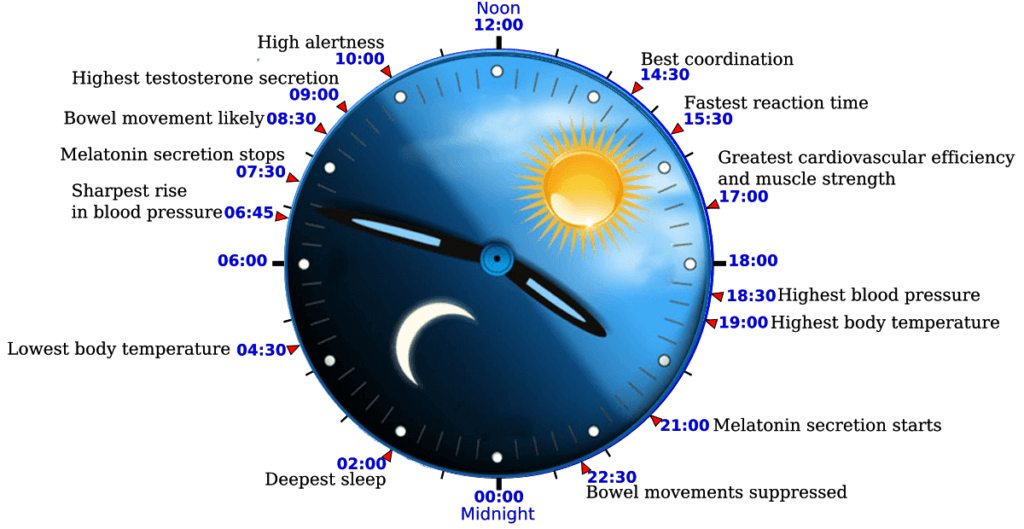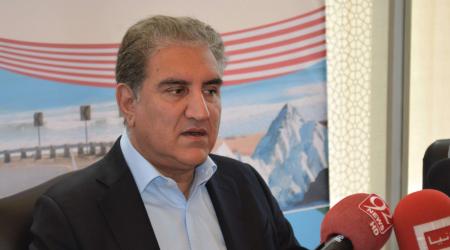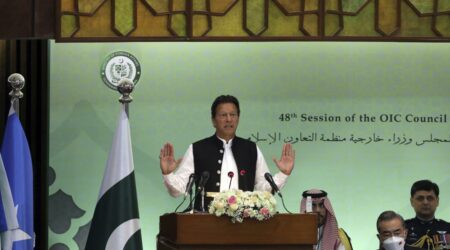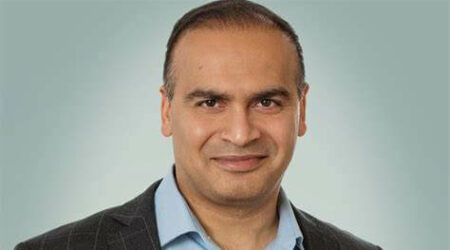Everyday Ayurveda by Dr. Bhaswati Bhattacharya
Most of us today grow up in urban or suburban homes. Even if we live in rural areas, we are not active farmers with schedules revolving around hours of sunlight and seasons. Since the Industrial Revolution, the cultures of the world that have adopted modernization, technological advances, and priority of convenience have gradually lost alignment of our lives with the sun and with the environment.
Zeitgebers
Known as zeitgebers, these cues in our schedules that align us to our natural biological circadian rhythm are crucial to our health. Zeitgebers (German, zeit, time; geber, giver) include rhythmic natural phenomena such as dawn and rising-falling temperatures of the day-night. Especially in conditions where people do not get regular clues from the weather, zeitgebers also include cues such as time for medication, regular tennis appointments or walking the dog, set meal times, set daily appointments with people such as school or work, or regular time with loved ones. These are especially useful for people in locked facilities, and for people living farther from 0 degree latitude, above 50 degree latitude, nearer the Arctic circle.
One key to good health is to link the body’s internal rhythms to these external routines so that our cellular factories can produce their work on a timely basis and hand it to the next factory in our body. These products include hormones, enzymes, and functional proteins that help regulate digestion, sleep, fat metabolism, and all our hormonal activities.
Scientific evidence shows that cognitive performance, including driving, verbal expression, memory and dexterity depend on alignment to our circadian rhythm. Mood disorders are also connected with our alignment to the circadian rhythm, and are responsible for a host of dysfunctional reactions, including suicides, divorce, and homicide, as well as the costs to society for chronic treatments, prescription medicines, and medical interventions paid by our public funds.
For the past century, modern living has created many advances in understanding and movement. Inventions have tried to reveal how things work, patenting use of light, sound and the elements to create feats of technology. Commerce and exploitation of natural resources of the earth have driven most geopolitical interactions. We have been convinced that such machinations of international relations are necessary for our well-being. We have been shown that alleviation of common infectious diseases using vaccines, clean water, and better hygiene and a rise in wealth for more people are reasons for supporting the ongoing trends in modern living. We have conceded that egos of world leaders and claims of superiority and exploitation of others should be respected.
Ayurveda whispers that we sacrifice our access to robust healthy bodies, smart minds and true wisdom when we lose connection with the Source.
When we live with a personal connection to the Earth, we have a relationship with her. We choose to protect her trees, and we know when the trees are not happy because her leaves and fruits tell us. We smell the soil and know when our choice of chemicals in the home destroy our land outside the front door. Instead of the commercial chemical-laden products, whose combinations have not even been proven for safety, we can choose to use the natural and organic house cleaners, lemon juice, white vinegar, ammonia, baking soda, and wood ashes.
Our relationship with the earth continues when we choose to support farmers who grow vegetables and bring them to us days after picking them from the living plants and soil. We can smell their true aromas and see their natural burst of colors. Ayurveda relates nutrients and building blocks for our bodies on these perceivable factors. It reminds us that living energy of plants is crucial to our wellness.
Organoleptics
Known as organoleptics, the properties of perception validate our experience of our world and connect us to it using our sound, touch, sight, taste and smell. Much of the food experience exploited by food science technologists comes from these preferences. We experience the delight of truth when we listen to our own senses and learn to perceive our own preferences for vibrations, textures, colors, flavors and aromas. Connecting our conscious minds to perceiving the world around us reconnects us to a world we might not want to be connected to, especially in these times of violence, personal trauma, and disconnection with the decisions of our leaders. Yet if we reconnect, we start living again.
Reconnecting with the dynamic earth is the key. When we actively participate, our energy becomes part of the equation of how the earth manifests. We influence the earth with our energy and our honest, true and independent perceptions. These perceptions fuel our artful crafts, our purposeful actions, and our goodness for ourselves and for our environments, our deepest dreams, and connect our commitments with our hearts. When we connect with closed hearts, all the negative and twisted products come pouring out.
The pure connection that flows from the earth feeds our hearts and energetically douses our brains and the bioelectricity that flows through our bodies. It is the basis of many medical systems on the earth, including Ayurveda and TCM (Traditional Chinese Medicine). This connection inspires our minds, converting any indecision on what we should study, who we should marry, where we should invest, and when we should travel into resolve. This connection is also the basis of the excellent decisions that many CEOs take. It is not a coincidence that the heads of dozens of the most successful corporations worldwide were raised on Bharatiya soil with rituals of food, sport, and clothing that connected directly to the earth, inculcating subconscious values that allow them to make connected decisions that influence millions of lives.
Sanatana
When we get reconnected with the truth of reconnecting with the earth, we disengage from others’ prescriptions. We are disinterested in the advertisements that demand we buy their product. We seek out those things that connect us honestly from our core. Pleasure is no longer a sin when it is connected to the open heart. Incidentally, there is no word in Sanskrit for the Christian concept of sin; there is only paapam, which means to go against the grain of your inner harmony.
The LOHAS (Lifestyle of Health and Sustainability) way of life helps us readjust modern living to better choices. It chooses farmers market over supermarkets. It chooses growing a summer garden over sleeping in late. It chooses locally grown food over exotic vegetable imports. It chooses minimalism over materialism. It chooses generosity over hoarding. This way of life guides our senses, makes us make sense of what we sense. It connects our bodies to what makes sense to our hearts. And it connects us with the sanatana, the eternal.

Dr. Bhaswati Bhattacharya
Columnist Dr. Bhaswati
Bhattacharya is a Fulbright
Specialist 2018‐2022 in Public
Health and Clinical Asst
Professor of Medicine, Weill
Cornell Medical College,
New York. Her bestselling
book Everyday Ayurveda is
published by Penguin
Random House.
[email protected],
www.drbhaswati.com










